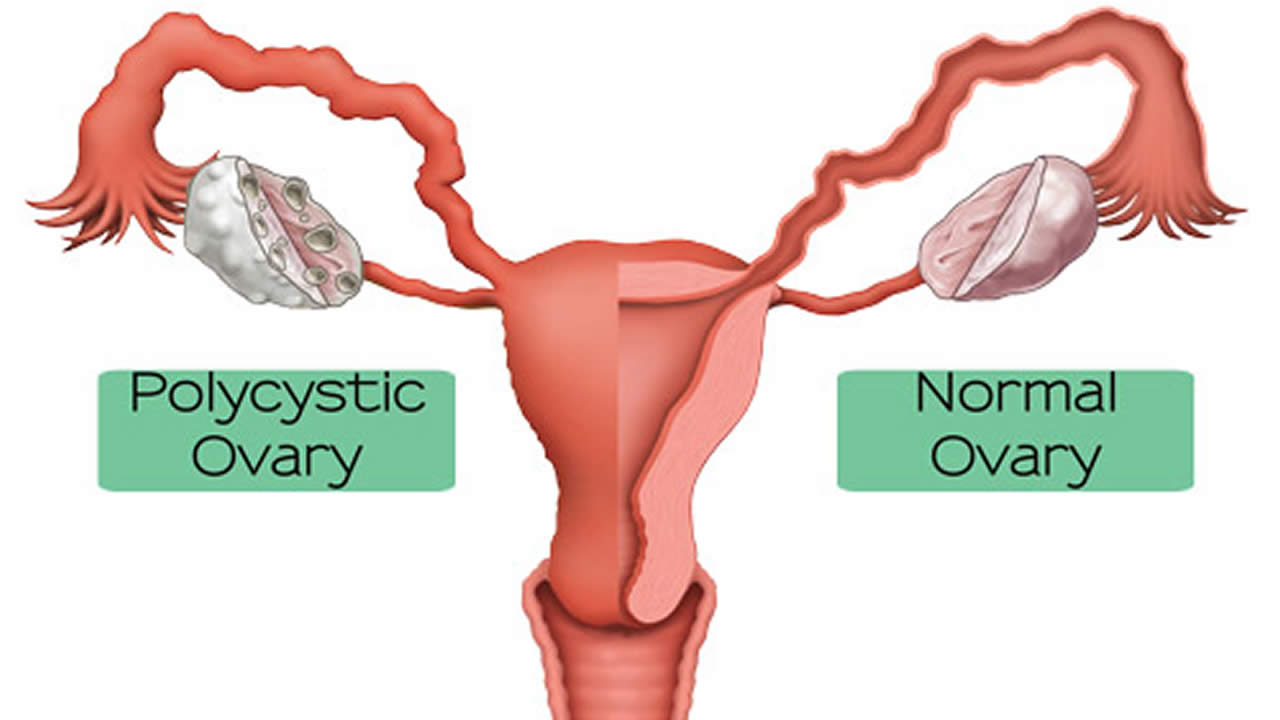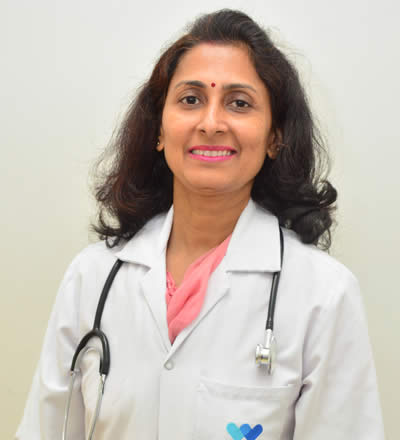
Polycystic Ovary Syndrome, also known as PCOS, is the common endocrine disorder among women and affects women of childbearing age. PCOS has no cure but with a healthy lifestyle and a good treatment, women can overcome the challenges as well getting pregnant. Dr Shilpa Sinha, Consultant Obstetrics and Gynaecology, elabotates on this medical condition.

Dr. Shilpa Sinha, Consultant Obstetrics and Gynaecology from Wellkin Hospital, explains that Polycystic Ovary Syndrome (PCOS), also known as Stein-Leventhal syndrome, is a condition that affects a women’s hormone levels. It affects approximately 2–20 % of women in the age range of 15-44 years. According to her, PCOS is due to a combination of genetic and environmental factors. Risk factors include obesity, lack of physical exercise, family history of someone with the condition. “The genetic component appears to be inherited in an autosomal dominant fashion with high genetic penetrance but variable expressively in females, this means that a child has a 50% chance of inheriting the predisposing genetic variant from a parent, and if a daughter receives the variant, she will suffer from this condition to some extent.”
She reveals that PCOS develops when the ovaries are stimulated to produce excessive amounts of androgenic hormones, in particular testosterone, by either one or a combination of the following release of excessive LH (luteinizing hormone’s) by anterior pituitary gland and through high level of insulin in blood (hyper insulinemia) in women whose ovaries are sensitive to the stimulus. “Since many symptoms involve a woman’s reproductive system, PCOS is often said to be a gynecological disorder. It is, however, a disorder of the endocrine system involving hormones production. Therefore, a specialist such as a reproductive endocrinologist should be consulted to confirm diagnosis.”
It is critical to be aware of the disease, as the symptoms of PCOS can vary from one women to another and hence, a woman may not realize that she has the symptoms. “Women are also at risk of serious complications, some of which are life threatening. Public awareness about symptoms and serious nature of the disorder are crucial to identify women in need of treatment.”
Symptoms and diagnosis
The doctor lists the following common sign and symptoms:
- Menstrual disorder oligomenorrhea (less than nine menstrual periods in one year), amenorrhea (no periods for more than 3-4 months)
- Infertility
- High level of masculinizing hormones - signs are acne, hirsutism, androgenic alopecia, patches of thick darker velvety skin.
- Metabolic syndrome - appears as a tendency towards central obesity and other symptoms with insulin resistance.
Additionally, PCOS is diagnosed on the following findings: No ovulation, high androgens level and ovarian cyst detection by ultrasound.
PCOS and fertility
One of the main concerns for many women suffering with PCOS is fertility. Dr Shilpa Sinha highlights that not all women with PCOS have difficulties in becoming pregnant. “For those that do, anovulation or infrequent ovulation is a common cause. Other factors include changed levels of gonadotropins, hyperandrogenemia and hyperinsulinemia. Like women without PCOS, women with PCOS that are ovulating may be infertile due to other causes such as tubal block and male infertility.”
Concerning pregnancy, Dr Shilpa Sinha adds, “Pregnancy is not impossible in PCOS. For an overweight anovulatory woman, loss and diet adjustments can help. “After weight loss, if still anovulatory, then medications like clomiphene citrate or letrozole are given for ovulation. If still unresponsive, other options available include assisted reproductive procedures such as controlled ovarian hyper stimulation with follicle stimulating hormone injections followed by intrauterine insemination or in vitro fertilisation.”
She further avers that sometimes, laparoscopic “ovarian drilling” (puncture of 4-8 follicles) with electro cautery, laser, biopsy needles can be performed to resume ovulation.
Overall treatment and complications
The gynecologist explains that there is no cure for PCOS. “Goals of treatment are to manage symptoms such as lowering of insulin resistance levels, Restoration of fertility, Treatment of hirsutism or acne, restoration of regular menstruation, and prevention of endometrial hyperplasia and cancer and to reduce weight or insulin resistance.”
Moreover, the doctor maintains that PCOS increases the risks of Type 2 diabetes, high blood pressure, endometrial hyperplasia and endometrial cancer, depression and anxiety, Dyslipidemia- disorders of cholesterol and triglycerides, strokes, weight gain, miscarriage, sleep apnea, non-alcoholic fatty disease and acanthosis nigricans.
Asked about the link between PCOS and diabetes, the doctor replies, “50-80% of PCOS have insulin resistance. According to American Diabetes Association, insulin resistance leads to production of high level insulin just as in early stages of Type 2 diabetes. PCOS is more prone to develop gestational diabetes in pregnancy.”
Besides, the doctor points out that there are several challenges in a woman with PCOS. But they can try to maintain a normal life by:
- maintaining a healthy weight through diet and exercises, life style modifications
- Annual checkup should involve blood sugar testing, blood pressure check, cholesterol levels
- See her gynecologist to make sure that she gets a regular period or at least 4-5 periods per year
- Medications to be taken if prescribed
- Seek assistance of infertility expert if required
- Emotional and social support from family members and partner.
PCOS Diet
Dr Shilpa Sinha indicates that there is no standard diet for PCOS but there are three diets that can help women. These include:
- A low glycemic index diet-food such as whole grains, legumes, nuts, seeds, fruits, vegetables, and other unprocessed low carbohydrate food.
- An anti-inflammatory diet such as berries, fatty fish, leafy greens, extra virgin olive oil
- DASH diet (dietary approaches to stop hypertension) to reduce risk of heart disease includes fish, poultry, fruits, vegetables, whole grains, low fat dairy products.
 J'aime
J'aime














